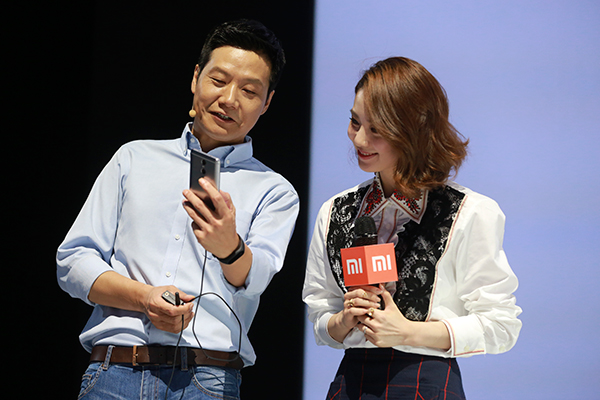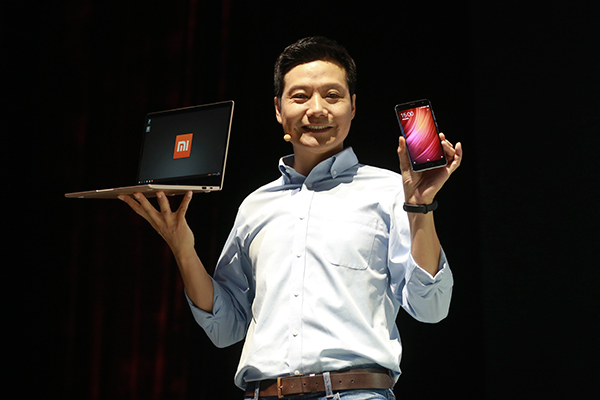 |
|
Lei Jun, CEO of Xiaomi Corp, tries Redmi Pro, a new Xiaomi handset released on Wednesday in Beijing, while actress Liu Shishi looks on. [Photo/China Daily] |
Xiaomi Corp unveiled its first laptop on Wednesday, in an effort to test the waters in the personal computer business as the Chinese smartphone vendor struggles with declining handset sales.
The Beijing-based company is sticking to the affordability strategy, which once helped it sell millions of smartphones.
But it remains to be seen how this will work in the PC sector, which has been dominated by players such as Lenovo Group Ltd and Apple Inc, experts said.
Mi Notebook Air, which retails from 3,499 yuan ($520), features a slim design and a body that the company claims is "thinner than a coin".
Equipped with an independent graphic card, the computer is designed to offer a better game-playing and video-watching experience.
Lei Jun, founder and CEO of Xiaomi, said: "We are focusing on making good-quality devices that are affordable for average buyers."
Although Xiaomi is a newcomer in the PC sector, the PC designers and developers it hires all have been working in the industry for more than 10 years, Lei said.
 |
|
Lei Jun, founder and CEO of China's mobile company Xiaomi, shows its new model Redmi Pro and the first laptop at the launching ceremony in Beijing, July 27, 2016. [Photo/China Daily] |
Xiaomi is part of a group of local firms that are expanding into the PC sector, as China's handset market reaches saturation. Its arch rival Huawei Technologies Co Ltd also launched its first PC product earlier this year.
Zhao Xiaolei, research manager at the China branch of research firm International Data Corp, said the main attraction of Xiaomi's PCs remains its affordability.
"Technologically speaking, there is not much innovation in Xiaomi's newly released PCs. But an affordable price coupled with good performance can help it appeal to college students and young people," Zhao said.
To keep costs under control, Xiaomi chose a traditional type of laptop with lower manufacturing costs, while Huawei opted for the new laptop-tablet hybrid model, which is more expensive but remains popular despite the overall decline of the PC sector.
In the second quarter of 2016, the global personal computer market saw a year-on-year decline of 4.5 percent, according to IDC.
"But the PC market won't decline forever. It is a mature market and there is always demand for quality PCs," Zhao said.
Xiaomi also released a new middle-end smartphone called Redmi Pro on Wednesday. It comes with dual rear cameras and an OLED display, which can deliver better imaging effects.
